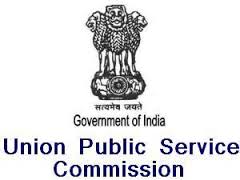
The main agenda of ruling Bhartiya Janta Party is to bring back black money and to reduce the size of underground economy in India. One way of reducing corruption and tax evasions is to go Cashless. Cashless Economy can be defined as a situation where there is very low cash flow. Today many countries have adopted the policy of Cashless economy. In Brussels an Indian diplomat’s wife was taking a course on French but she was unable to give the tuition fees in cash, the teacher used a small credit machine to collect fees. Similarly in Belgium there are petrol cards and cards for all forms of public transport and services.
India’s Finance Minister Mr. Arun Jaitley probably have thought of some similar kind of culture and spoke of moving India into Cashless Economy. Cash still KING in India, even in metros cash transactions are very popular even in malls. By a study conducted by Management Consulting firm AT Kearney it was discovered that only 10% of the sale by value happens via card rest 90% by cash. Even the E-Commerce portals encourages Cash On Delivery to increase there customer base. India is among the most cash intensive economies in the world. India’s cash to GDP ratio (12-13%) was higher than that of China, Germany, Brazil and US as of 2014. People in India avoid transactions via cards because of high transaction costs which is upto 3% on electronic payments and also to escape sales tax.
To reduce tax evasions in India, government is trying to push towards a Cashless Economy with the help of Income Tax Department (I-T) . I-T department set up an audit trail for various transactions and help check the underground economy. Also government drafted a proposal to finance ministry, recommending tax concessions to reduce the cost of credit, debit and online payments. Electronic transactions will document the buyer , seller and the exact value of transaction.
If this will be implemented successfully than new measures will be a boost for global and debit card comapnies like American Express, Visa etc. Also it will help the tax department meet its ambitious target of adding 2.5 million people to the taxpayer base every month. Less cash in the economy will also help to expand the formal sector, which will further increase the tax payer base and reduce the inequality between tax payers and non tax payers.
Cashless economy will benefit individuals also, there will be no need for standing in long queues outside ATMs, no waiting for a deposited cheque to be credited , also it will enhance security procedures.
Cashless Economy is still in thoughts only and far from India’s reach but we have taken a step towards Less-Cash economy. Encouraging plastic currency should be welcomed from the perspective of increasing government’s capability to monitor illegal transactions and to raise revenue for the development of the economy.
Click here for government certification in Accounting, Banking & Finance



22 Comments. Leave new
Very nicely written! I agree India should go cashless in order to reduce the cases of corruption…
it surely has benefits.. but internet banking frauds are an disadvantage of such an economy.
Nice article
Nice..
very very nice article.transaction through cards reduces the risk of getting duplicate rupees.
very very nice article.transaction through cards reduces the risk of getting duplicate rupees of generally 500 hundreds.
very very nice article.transaction through cards reduces the risk of getting duplicate rupees of generally 500 hundreds and 1000.
Exactly!! Very well written article..
It seems like an interesting concept. I hope that if implemented, the advantages outweigh the disadvantages and a majority is able to utilize the benefits..
nicely written:);)
It’s an eye opener!
exactly.it will help in many ways namely, reducing bribing, illegal transactions etc. we should welcome it whole heartedly
Well articulated.
Good job.
Interesting read
Nice article 🙂
Explained well..!
Nice article!
Very true. Nice article.
Good job, Prachi!
Amazing work, well done
Plastic money 😛 nice article.